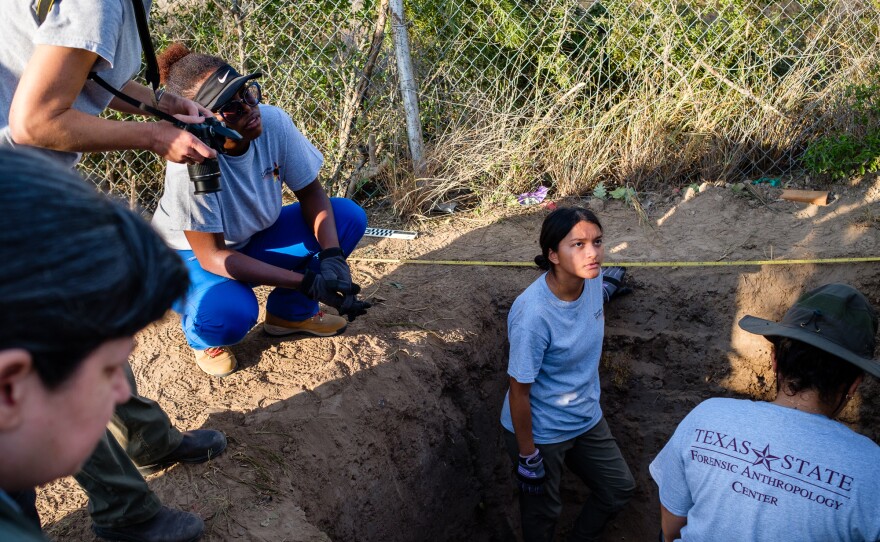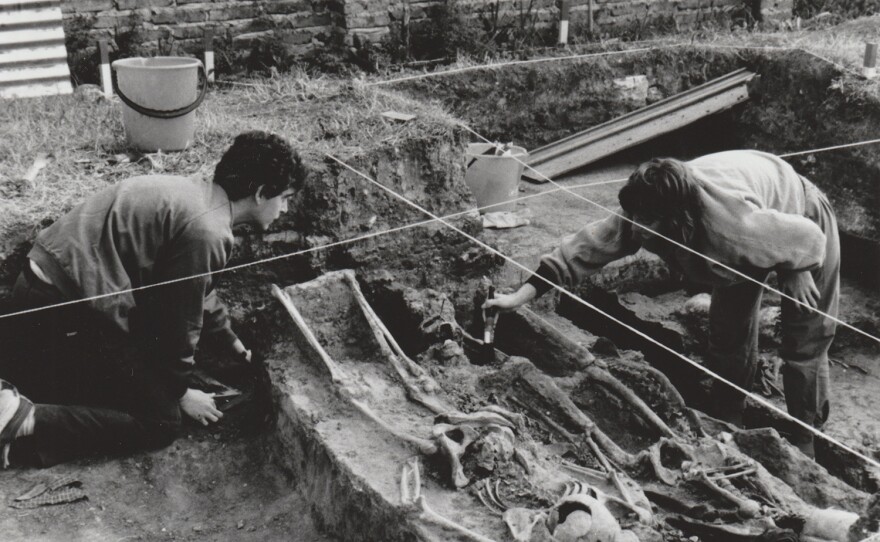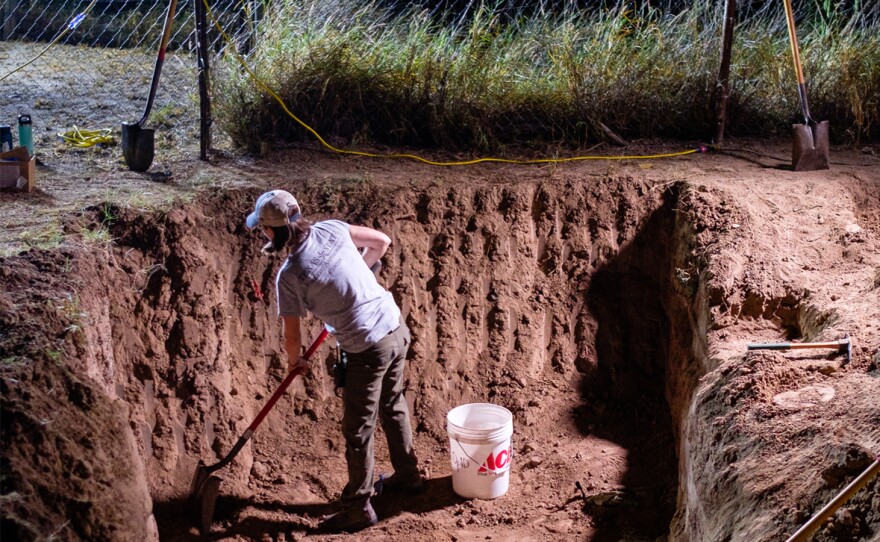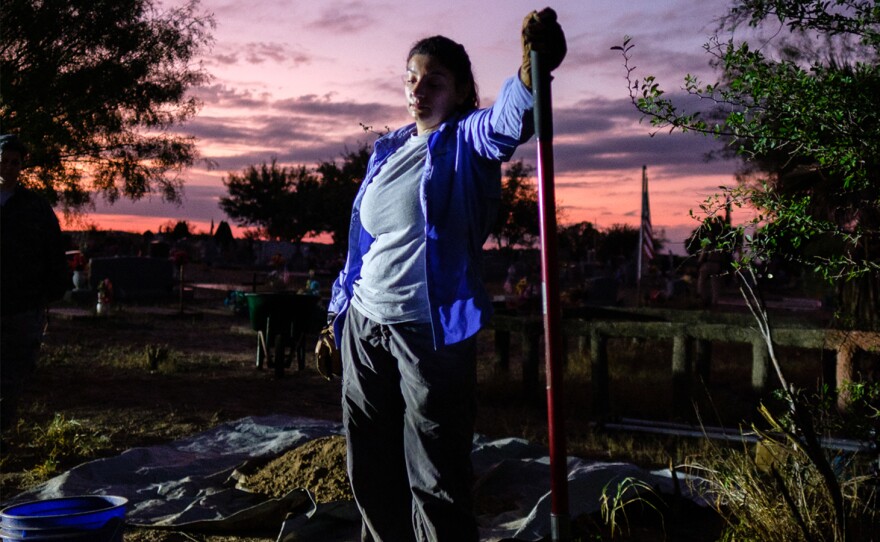Thursday, June 13, 2024 at 9 p.m. on KPBS 2 / Stream now with KPBS Passport!
In 1984, Dr. Clyde Snow, a legendary U.S. anthropologist known for his work identifying the remains of Auschwitz physician Josef Mengele and the victims of the serial killer John Wayne Gacy, traveled to Argentina to help uncover the fates of the estimated 30,000 people who were forcibly disappeared during the 1970s dictatorship.
Unwilling to work with many of the established scientists who had collaborated with the apparatus of the dictatorship, Snow set about to train a new group in the use of forensic anthropology. He eventually met a group of medical and anthropology students – some as young as 19 – and the team was soon digging up an unmarked grave on the outskirts of Buenos Aires.

The group, which included Mercedes (Mimi) Doretti, Patricia Bernardi, and Luis Fondebrieder, would go on to not only help establish accountability for the crimes committed under the Argentine military junta, but to initiate a decades-long relationship with investigative journalists working on parallel tracks to create a fact-based accounting of massacres and state-sponsored crimes in over 30 countries.

After Argentina in the 1980s, the film follows the story of Mimi Doretti and fellow co-founder Patricia Bernardi as they traveled to El Salvador in the early 1990s to investigate the 1981 El Mozote massacre. Then from El Salvador to the team’s 1997 discovery and exhumation in Bolivia of the remains of Ernesto “Che” Guevara, whose whereabouts had been a mystery since his killing 30 years earlier. And finally to Mexico, where the team investigates the 2014 forced disappearance of 43 students in the town of Ayotzinapa.

Throughout these cases, we see this unique investigative team doggedly working behind the scenes to establish the facts for the families of the victims in the face of intense political opposition and as their work becomes increasingly difficult and more dangerous with each dig.
Film Awards:
“El Equipo” was awarded the Jury Prize for best documentary feature at the 2023 Sebastopol Documentary Film Festival, and was named a “Top 20 Audience Favorite” at the Hot Docs Canadian International Film Festival.

Watch On Your Schedule: This film will be available to stream with KPBS Passport, a member benefit that unlocks exclusive shows and extra content on the PBS App.
Credits: Director Bernardo Ruiz. Producer: Gabriela Alcalde. Editor / Co-Producer: Fabián Caballero. The film was produced in partnership with VOCES and Latino Public Broadcasting, and received funding through ITVS’s Open Call funding initiative.





